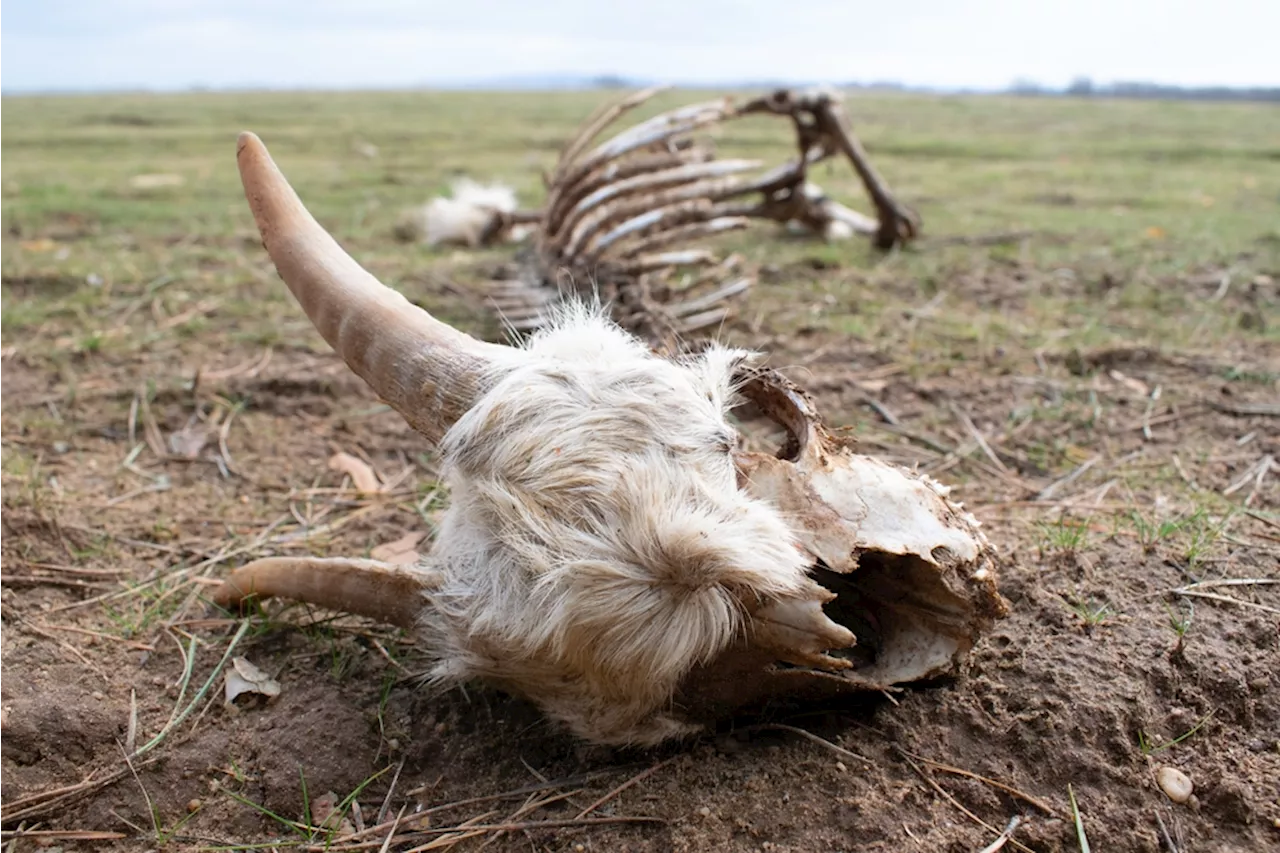It took a lot of fat and protein to survive during the Last Ice Age. Researchers explore if early humans scavenged animals and if it contributed to their development.
Saber-tooth cats ate only a portion of what they killed, creating opportunities for other species. When early humans first arrived in modern-day Spain, about a million and a half years ago, they immediately faced a quandary: what to eat?
But have no fear. A new computer simulation has found that with sufficient numbers, human groups could have scavenged enough meat to sustain a healthy population. There’s only one catch: To really excel at scavenging, they would have had to scare off the occasional hyena and take a kill by force.
Per the simulation, more than 10 humans were enough to shoo away any of the predators, and thus the researchers found that a population of about a dozen hit the sweet spot. Beyond that, the negatives of adding more people exceeded the positives. Carrion bones may also have stimulated technological development as early humans fashioned them into tools such as multi-purpose “retouchers” used to sharpen stone edges.
United States Latest News, United States Headlines
Similar News:You can also read news stories similar to this one that we have collected from other news sources.
 Trapped in a Dangerous Loop: Humans Inherit Artificial Intelligence BiasesPeople can adopt biases from artificial intelligence in their decision-making processes, according to a new study. New research provides evidence that people can inherit artificial intelligence biases (systematic errors in AI outputs) in their decisions. The study was conducted by the psychologis
Trapped in a Dangerous Loop: Humans Inherit Artificial Intelligence BiasesPeople can adopt biases from artificial intelligence in their decision-making processes, according to a new study. New research provides evidence that people can inherit artificial intelligence biases (systematic errors in AI outputs) in their decisions. The study was conducted by the psychologis
Read more »
 The Delicate Balance Between Humans and Robots Is Threatened in New 'Pluto' TrailerThe anime series will arrive on Netflix later this month.
The Delicate Balance Between Humans and Robots Is Threatened in New 'Pluto' TrailerThe anime series will arrive on Netflix later this month.
Read more »
 MusiCares Debuts Humans of Hip HopIn celebration of the 50th anniversary of hip hop, MusiCares® and Vivid Seats are joining forces to support the humans who make hip hop happen.
MusiCares Debuts Humans of Hip HopIn celebration of the 50th anniversary of hip hop, MusiCares® and Vivid Seats are joining forces to support the humans who make hip hop happen.
Read more »
 SoftBank’s Son Says Artificial General Intelligence Will Soon Surpass HumansThe technology investor predicts people will need to adopt AI in their lives.
SoftBank’s Son Says Artificial General Intelligence Will Soon Surpass HumansThe technology investor predicts people will need to adopt AI in their lives.
Read more »
 OPINION: Too much misinformation? The issue is demand, not supply.We should worry less about AI-generated lies and more about the humans seeking them out.
OPINION: Too much misinformation? The issue is demand, not supply.We should worry less about AI-generated lies and more about the humans seeking them out.
Read more »
 Council Post: New Dimensions In Human-Automation CollaborationAs today's automation technologies morph, they change the relationship between humans and the automation technology.
Council Post: New Dimensions In Human-Automation CollaborationAs today's automation technologies morph, they change the relationship between humans and the automation technology.
Read more »
